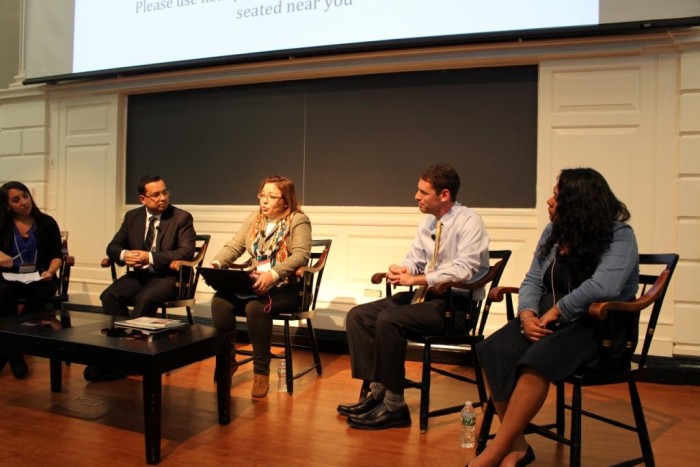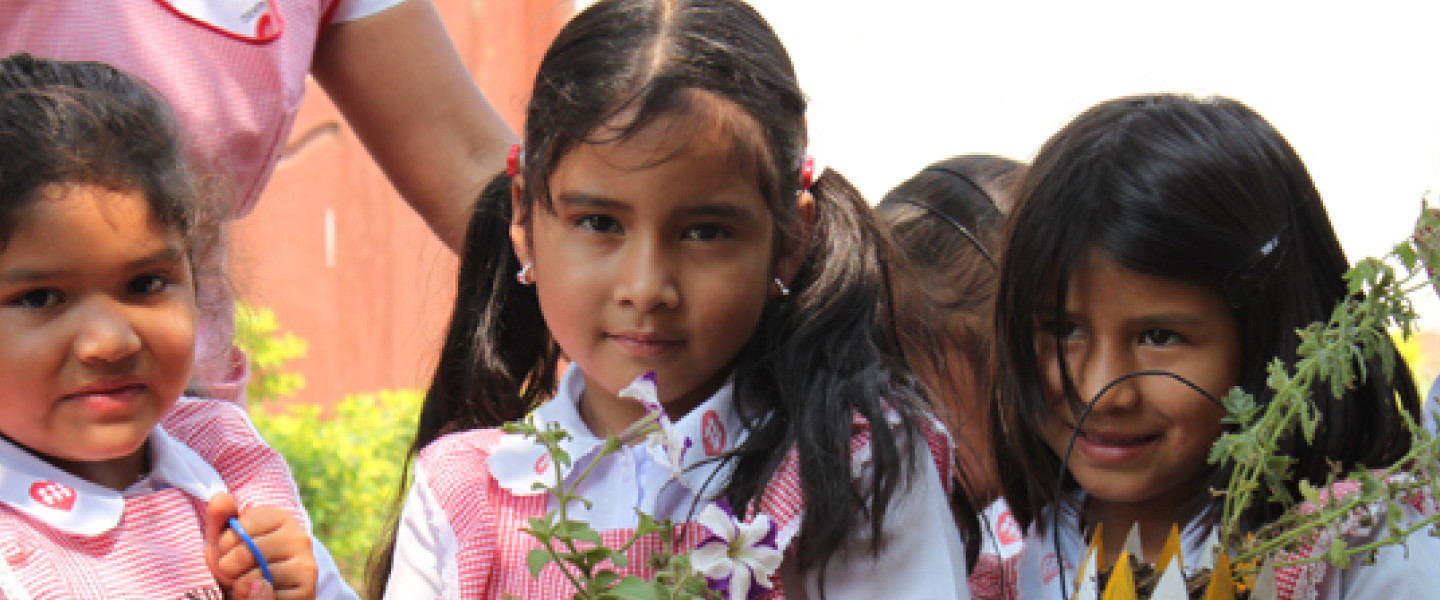
On April 15th, I had the opportunity to participate as a panelist in the Latin American Education Forum, Master of Educational Policies of Harvard University, in Boston, Massachusetts. The specific panel which I was part of was called “Education in the light of migration” and I shared the presentation with others from Central America and the United States, among them Daniel Sass, English teacher and Katia Miranda, student from El Salvador, both representing “The International High School”, a new school attended by undocumented migrant students and which will have continuous education every year. Dr. Nelson Portillo, from Boston College, who has had experience as consultant for violence prevention in El Salvador, also participated in this panel.
We were asked very interesting questions: How did our interest in migration issues arise? What educational policies have emerged in our countries regarding migration? What can we do as an institution to solve the migration problem and what do we recommend that students of this master do, so they can generate policies allowing the assimilation and standardization of educational processes of migrant students in the United States?
For my part, I shared that being a Nicaraguan immigrant’s daughter, I have been linked to the subject of migration since birth, and due to the internal armed conflict in Guatemala and the xenophobia against the Nicaraguans in the 80s, I had to migrate with my family to Nicaragua and then return, that is to say, I had lived through migration processes since childhood… but my main interest arose when working in Fe y Alegría, getting to know children of migrants and their learning difficulties, family restructuring and how this affected them emotionally and educationally. Also, I told them about our mission, who we are and where we are, the federative plan, the new frontiers and lines of action focused on attention to migrants to promote their social integration, through the alliances with Jesuit Migrant Service and their support in education processes on issues related to migration.
On the question of policies for inclusion of migrants in the educational system, I told them that in Latin America the development on the issue has been precarious, an almost non-existent subject, Despite the fact that there are some countries addressing the issue from their constitutions and policies for migrants. I also mentioned the need to raise awareness among our governments, to share the vision that migration is beneficial rather than a problem, since the receipt of remittances are favoring the incomes of our countries…
Regarding the final question, I discussed the concern that causes me to talk about assimilation and standardization of educational process since this prevents learning from our people’s cultural wealth and limits the cultural identity of each person… I shared about the inclusive education approach, and I spoke about multiculturalism as a latent action in the US and also in culturally diverse countries and interculturality, as an action aimed to build more democratic countries.
The experience was very enriching, but from the beginning it seemed a huge challenge, as I was responsible for representing the Federation. I spent many stressful nights, I read a lot, talked to many people from SJM and with friends from other pro-migrant institutions, with people from the federation in order not to leave anything out of my paper…
I still have many challenges, to monitor the migration work in my country, to continue studying, research and to transmit knowledge to others so that this reality can change…
Post written by Blanca Gutierrez, Head of Social Promotion, International Federation of Fe y Alegría

